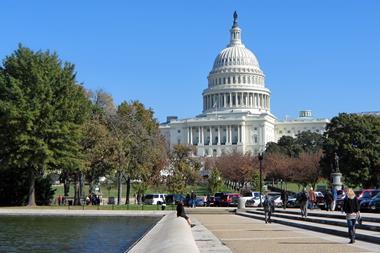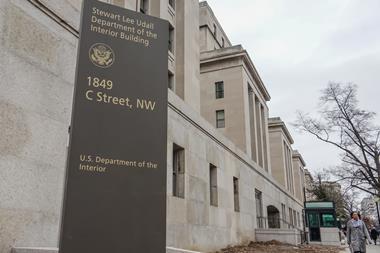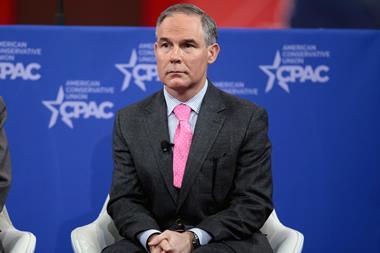Warnings that taxing endowments of top universities under the overhauled tax code will threaten research
The landmark overhaul of the US tax code signed into law by President Trump just before Christmas represents a significant improvement from its earlier iterations but still threatens the country’s major research universities and its global scientific leadership, according to academic organisations, science advocates and policy analysts. However, the chemical industry is enthusiastic about the changes, which constitute the first major revamp of US tax law in over three decades.
The massive $1.5 trillion (£1.11 trillion) Republican tax plan, slated to go into effect this month, does not include the original provisions that could have been most damaging to university research. The final bill that is now law omitted controversial language that would have made graduate student tuition waivers taxable and eliminated the deduction for student loan interest.
There is, however, unease over a provision that taxes universities with the largest endowments. ‘If you tax the earnings that universities make on their endowments, they will have less money available to enhance education and research,’ says Michael Lubbell, a physics professor at the City College of New York, formerly the public affairs director for the American Physical Society.
This tax on endowments will mostly affect research-intensive universities, which may respond by reducing their spending on faculty, financial aid for graduate students or facilities, according to Emily Schwartz and Danny Rossman, educational analysts at the academic consulting firm Ithaka S&R in New York City. The extent to which research funding is affected will depend on an institution’s priorities, they note.
Universities argue that the proceeds from their endowments go to pay for scholarships, fellowships and to underwrite the costs of research. These institutions do not recoup from federal research grants all of the indirect costs that they spend to provide needed research infrastructure.
Troubling taxes
Samantha Hernandez, who directs legislative affairs for the National Association of Graduate-Professional Students based in Washington DC, agrees that there is cause for concern. ‘Taxes on university endowments can affect research abilities and attracting established researchers to universities, specifically mid-sized and small research institutions,’ she says.
Although the immediate threat to the US education system was thwarted and the endowments tax was reduced in the final tax overhaul bill, Hernandez remains troubled. ‘These attempts signal a commitment by [Republicans] to attack higher education,’ she says.
Estimates indicate that the new tax law could increase the deficit by as much as $1.4 trillion, and so another concern is that this shortfall may eventually be closed by cutting spending, which may hit research.
Meanwhile, the chemical sector is embracing the new tax law. The American Chemistry Council (ACC), a chemical industry trade association, welcomed what it called the new ‘modernised tax structure’, and said the US has had an outdated tax code for decades that has made the country’s businesses less competitive.
The final legislation included several provisions long sought by the ACC, including a significantly lower corporate tax rate effective in 2018, retention of the R&D tax credit and a bifurcated rate for repatriated earnings – one with a significantly lower rate for earnings reinvested in plants and equipment than for cash/cash equivalents.
The National Association of Chemical Distributors also welcomed the overhaul of the US tax code. ‘Taken together, these provisions will enable small businesses, like most chemical distributors, to use a greater share of their earnings to expand their facilities, increase their product offerings and hire more workers,’ said the trade group’s president, Eric Byer.

















No comments yet